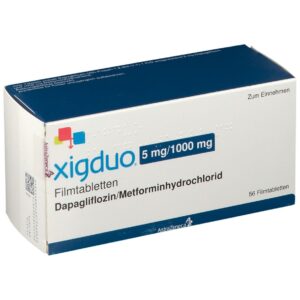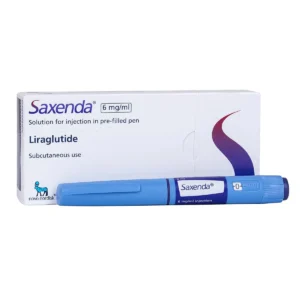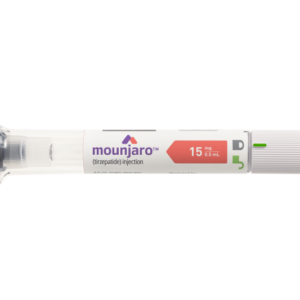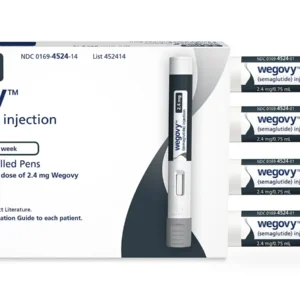No products in the cart.
Victoza
$55.00 – $167.00
Victoza is an effective medication designed for the management of type 2 diabetes and weight loss. Containing liraglutide, it helps regulate blood sugar levels by increasing insulin secretion and reducing appetite. Administered via a once-daily injection, the medication not only aids in controlling diabetes but also supports weight management efforts, promoting a healthier lifestyle. Ideal for individuals looking to improve their overall health, Victoza offers a comprehensive approach to diabetes care. Consult your healthcare provider to see if Victoza is the right choice for you.
Victoza: A Comprehensive Solution for Type 2 Diabetes Management and Weight Loss
Introduction
In recent years, the prevalence of type 2 diabetes has reached epidemic proportions, with millions of individuals affected worldwide. This chronic condition significantly impacts quality of life, leading to various complications such as heart disease, kidney failure, and vision loss. As the medical community continues to search for effective treatments, Victoza (liraglutide) has emerged as a powerful tool in the management of type 2 diabetes and weight loss. This medication not only aids in regulating blood sugar levels but also promotes significant weight reduction, addressing two critical aspects of health simultaneously.
Understanding Type 2 Diabetes
Type 2 diabetes is a metabolic disorder characterized by insulin resistance and impaired insulin secretion. This condition typically develops over time, often as a result of genetic predisposition, obesity, sedentary lifestyle, and poor dietary choices. The consequences of unmanaged diabetes can be severe, leading to complications such as:
• Cardiovascular Disease: Increased risk of heart attacks, strokes, and hypertension.
• Neuropathy: Nerve damage that can cause pain, tingling, and loss of sensation in extremities.
• Retinopathy: Damage to the blood vessels in the retina, potentially leading to blindness.
• Nephropathy: Kidney damage that can progress to kidney failure and require dialysis.
Managing type 2 diabetes effectively is crucial to preventing these complications and improving overall health. While lifestyle changes—such as diet and exercise—are essential, many individuals may also require medication to help control their blood sugar levels.
What is Victoza?
Victoza is a prescription medication that contains the active ingredient liraglutide. It is classified as a GLP-1 (glucagon-like peptide-1) receptor agonist, which mimics the action of naturally occurring incretin hormones in the body. These hormones are involved in glucose metabolism and appetite regulation.
Key Features of Victoza:
• Indication: Victoza is indicated for adults with type 2 diabetes to improve glycemic control. It is also approved for weight management in conjunction with a reduced-calorie diet and increased physical activity.
• Administration: Victoza is administered via a subcutaneous injection once daily. The easy-to-use pre-filled pen allows for convenient self-injection, making it manageable for daily use.
• Dosing: The initial dose is typically 0.6 mg per day, which can be increased to 1.2 mg or 1.8 mg depending on individual response and tolerance.
How Does Victoza Work?
Victoza works through several mechanisms to help regulate blood sugar levels and promote weight loss:
1. Increased Insulin Secretion: Liraglutide stimulates the pancreas to release insulin in response to meals. This action helps lower blood sugar levels, particularly after eating.
2. Decreased Glucagon Secretion: Glucagon is a hormone that raises blood sugar levels. By inhibiting glucagon secretion, Victoza helps to maintain lower blood glucose levels.
3. Slowed Gastric Emptying: Victoza delays the emptying of the stomach, which helps individuals feel full longer after meals. This satiety effect contributes to reduced food intake and aids in weight loss.
4. Appetite Regulation: By acting on the brain’s appetite centers, Victoza helps reduce cravings and overall caloric intake, making it easier for individuals to adhere to a weight-loss regimen.
Benefits of Using Victoza
1. Effective Glycemic Control
Clinical studies have demonstrated that Victoza effectively lowers HbA1c levels (a measure of average blood sugar over the past two to three months). Participants in trials have shown significant improvements in glycemic control, leading to better overall health outcomes.
2. Substantial Weight Loss
Weight management is a critical component of type 2 diabetes management. Many individuals with diabetes struggle with obesity, which exacerbates their condition. Victoza has been shown to promote meaningful weight loss; clinical studies indicate that individuals using Victoza may lose an average of 5-10% of their body weight over six months to a year.
3. Cardiovascular Benefits
Research has shown that Victoza can reduce the risk of major cardiovascular events, such as heart attacks and strokes, in patients with type 2 diabetes and established cardiovascular disease. This added benefit makes Victoza a preferred option for those at high risk for cardiovascular complications.
4. Convenient Once-Daily Dosing
The convenience of a once-daily injection simplifies the management of diabetes. Patients appreciate the ease of use that the pre-filled pen provides, allowing for quick and straightforward administration.
5. Positive Impact on Quality of Life
By improving glycemic control and promoting weight loss, Victoza has a positive impact on patients’ quality of life. Users often report enhanced energy levels, improved mobility, and increased self-esteem.
How to Use Victoza
1. Administration
Victoza is administered as a subcutaneous injection in the abdomen, thigh, or upper arm. Here’s how to use it:
• Preparation: Wash your hands thoroughly and gather your supplies, including the Victoza pen and alcohol wipes.
• Choose Injection Site: Select a clean area for injection, rotating the site each time to reduce the risk of irritation.
• Prepare the Pen: Follow the instructions provided with the pen to ensure it is ready for injection.
• Inject: Pinch the skin around the injection site, insert the needle at a 90-degree angle, and press the button to deliver the medication. Hold for a few seconds to ensure the full dose is administered.
2. Dosing Schedule
Victoza should be taken at the same time each day to maintain consistent levels in the bloodstream. It can be taken with or without food, providing flexibility in daily routines.
• Starting Dose: 0.6 mg daily for the first week.
• Maintenance Doses: Depending on individual tolerance and glycemic control, the dose may be increased to 1.2 mg or 1.8 mg after the initial week.
3. Lifestyle Considerations
While Victoza is effective on its own, optimal results are achieved when combined with lifestyle changes. A balanced diet, regular exercise, and routine monitoring of blood sugar levels are crucial components of a successful diabetes management plan.
Potential Side Effects
As with any medication, Victoza may cause side effects. While many individuals tolerate the medication well, some may experience:
• Nausea: This is the most common side effect, particularly when starting the medication. Most patients find that nausea decreases over time.
• Diarrhea or Constipation: Gastrointestinal disturbances are common but typically resolve as the body adjusts.
• Abdominal Pain: Mild discomfort may occur, especially during the initial phase of treatment.
• Headache: Some users may experience headaches, particularly when adjusting to the medication.
In rare cases, Victoza may cause more severe side effects, including:
• Pancreatitis: Signs include severe abdominal pain that may radiate to the back, nausea, and vomiting. Patients should seek medical attention if they experience these symptoms.
• Kidney Problems: Changes in urination patterns or swelling in the legs or feet may indicate kidney issues.
• Thyroid Tumors: Although rare, there have been reports of thyroid tumors, including medullary thyroid carcinoma. Patients with a history of thyroid cancer should discuss this with their healthcare provider before starting Victoza.
Monitoring for Side Effects
Regular follow-up appointments with a healthcare provider are essential to monitor for any potential side effects and assess the medication’s effectiveness. Keeping track of blood sugar levels, weight changes, and overall health can help guide adjustments to the treatment plan.
Who Should Not Use Victoza?
Victoza is not suitable for everyone. It is contraindicated in certain situations, including:
• Personal or Family History of Medullary Thyroid Carcinoma: Individuals with this history should avoid using Victoza due to the potential risk of thyroid tumors.
• Multiple Endocrine Neoplasia Syndrome Type 2: This genetic disorder increases the risk of thyroid tumors, making Victoza inappropriate.
• Severe Allergies to Liraglutide: Those with known hypersensitivity to liraglutide or any of the excipients in the formulation should not use Victoza.
Lifestyle Changes for Enhanced Results
While Victoza is a powerful medication, incorporating healthy lifestyle changes is essential for achieving optimal results in weight management and diabetes control. Here are some strategies to consider:
1. Balanced Diet
• Emphasize Whole Foods: Focus on incorporating whole, minimally processed foods, including fruits, vegetables, lean proteins, whole grains, and healthy fats into your diet.
• Control Portions: Be mindful of portion sizes to help manage caloric intake and prevent overeating.
• Limit Sugary Foods: Reducing the consumption of added sugars and refined carbohydrates can improve blood sugar control and support weight loss efforts.
2. Regular Physical Activity
• Cardiovascular Exercise: Aim for at least 150 minutes of moderate-intensity aerobic exercise each week, such as brisk walking, swimming, or cycling.
• Strength Training: Incorporate strength training exercises at least two days a week to build and maintain muscle mass, which is essential for metabolism.
3. Behavioral Modifications
• Keep a Food Journal: Tracking food intake can help identify patterns, triggers, and areas for improvement in dietary habits.
• Practice Mindful Eating: Focus on the eating experience, savoring each bite, and paying attention to hunger and fullness cues to prevent overeating.
4. Support Networks
• Engage with Healthcare Providers: Regular communication with healthcare providers can help tailor the diabetes management plan to individual needs and preferences.
• Join Support Groups: Connecting with others who share similar challenges can provide encouragement, accountability, and valuable insights into managing diabetes and weight loss.
Conclusion
Victoza represents a significant advancement in the treatment of type 2 diabetes and weight management. With its dual-action mechanism of regulating blood sugar and promoting weight loss, Victoza offers a comprehensive approach to diabetes care. By incorporating this medication into a well-rounded lifestyle that includes a balanced diet and regular exercise, individuals can achieve lasting health improvements and enhance their quality of life.
As with any medical treatment, it is essential to consult with a healthcare provider to determine if Victoza is the right choice for your individual circumstances. With the right support and resources, managing type 2 diabetes can become a more attainable and sustainable goal.
Frequently Asked Questions (FAQs)
1. What is Victoza?
The medication is a prescription medication that contains liraglutide, used for the management of type 2 diabetes and weight loss.
2. How does Victoza work?
The medication mimics the effects of the GLP-1 hormone, increasing insulin secretion, reducing glucagon levels, slowing gastric emptying, and promoting satiety.
3. Who is a candidate for Victoza?
The medication is indicated for adults with type 2 diabetes and can also be prescribed for weight management in individuals with obesity or overweight.
4. How is Victoza administered?
The medication is administered as a subcutaneous injection once daily, using a pre-filled pen for convenience.
5. What are the common side effects of Victoza?
Common side effects may include nausea, diarrhea, constipation, abdominal pain, and headache. Most side effects are mild and diminish over time.
6. Can Victoza be used alongside other diabetes medications?
Yes, the medication can be used with other diabetes medications, but it is essential to consult a healthcare provider to tailor the treatment plan appropriately.
7. Is Victoza safe for long-term use?
Long-term use of the medication has been studied, and many individuals benefit from sustained therapy. Regular follow-ups with healthcare providers are necessary to monitor effectiveness and side effects.
8. How quickly can I expect to see results with Victoza?
Some individuals may begin to see improvements in blood sugar levels within a few weeks, with significant weight loss typically observed after 16-20 weeks of consistent use.
9. What should I do if I miss a dose of Victoza?
If you miss a dose, take it as soon as you remember. However, if it’s almost time for your next dose, skip the missed dose and return to your regular schedule. Do not double the dose.
10. Are there any contraindications for Victoza?
The medication is contraindicated for individuals with a personal or family history of medullary thyroid carcinoma, multiple endocrine neoplasia syndrome type 2, or severe allergies to liraglutide.
Additional information
| Dosage | 1 Pen, 2 Pens, 3 Pens, 4 Pens |
|---|











Reviews
There are no reviews yet.